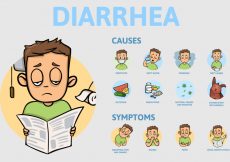Children, especially the younger group, engage in hitting, kicking, or biting their parents and peers. This common behavior is found in various stages and continues even though you discipline your child. Pediatric psychologists recommend keeping calm and understanding it as a poor way for young children to communicate their feelings. However, there can be several other reasons for this behavior in a child.
Read this article to know why children hit and how to stop a child from hitting.
Why Do Children Hit?
Children might show acts of physical aggression to communicate their feelings. This could also be a part of their general development. Some reasons why children might bite include the following:
- Physical aggression, such as biting, punching, throwing tantrums, etc., could express their anger and sadness, or it might indicate that they are unable to communicate their concerns. For example, when your child has lost a game, or things do not go as planned, they may turn aggressive (1)
- In younger children, hitting someone may be due to a lack of self-control, understanding that hitting someone is wrong, an inability to process feelings, or a desire to test limits (2).
- A child may also hit their siblings or others for showing their power and domination over others(3).
Sometimes, unfavorable events during childhood can cause a mental scar, leading to aggression and violent behavior. They include (4):
- Victim of physical abuse, sexual abuse, or bullying.
- Exposure to violence at home, in the community, or through the media.
- Stressful family socioeconomic variables, including poverty, extreme deprivation, divorce, single parenting, unemployment, and lack of extended family support.
Sometimes, there can be a neuropsychiatry reason for the aggressive behavior of children. Disorders, including attention deficit hyperactivity syndrome (ADHD), autism, head injury, rage attacks or episodic controls, and confusion, may cause aggressive behavior in a child to hit or bite someone or throw tantrums. Also, neurometabolic diseases, such as Wilson disease and Huntington disease, can result in aggressive behavior in children (5).
How To Stop A Child From Hitting?
Here are some behavioral management strategies that could be helpful to stop a child from hitting:
- Act early: Observing your child’s behavior can be helpful to act early. Intervene when you think your child is about to hit someone (3).
- Tell it is not okay to hit: Telling them that hitting someone is not good and talking about it beforehand will help them anticipate how they’ll feel. This way, they will understand when things don’t go as planned (1). You can also show them “gentle touch”, especially to a young child who cannot understand.
- Plan one-on-one time: This helps build a positive child-parent relationship where a child gets comfortable talking to you about their problem (6). It is an effective strategy if your child is bullied at school or is a victim of physical or sexual abuse (7).
- Establish rules: Consider teaching household rules, such as respecting others and not allowing physical violence or abuse (biting, kicking, hitting) at home could help (8).
- Use consequences to enforce rules: Using some methods to teach your child the consequences of their actions can build responsibility and encourage good behavior. For instance, if your child continues to hit, taking away their privileges (end of playtime) can provide them with a warning and an opportunity to change their behavior. On the other hand, praising positive behavior, appreciating and rewarding children for their good behavior will further encourage them (6).
- Responding at the moment: Behavior experts suggest that if a child is hitting and throwing tantrums for a specific reason or thing, remaining calm and refraining from giving it will teach a child that such behavior is not acceptable (7)
- Welcome the meltdown: Do not try to reason with a child when they are upset or angry. You can talk and listen to their reasoning once their anger subsides (7).
- Using alternative behaviors: When your child is about to hit someone, you can divert your youngster or teach them alternative ways to respond (8).
- Do not beat your child: Hitting and scolding the child will encourage them to use aggressive behavior. Toddlers and young children mimic an elder’s actions and behaviors (3).
- Seek professional help: Parents should seek help from a psychiatrist or other mental health specialist specialized in examining and treating behavioral issues in young children if their child has persistent aggressive conduct and poor social skills (3).
- Join parent training programs: These programs are intended to improve the parent–child relationship while also strengthening parent’s skills parents to manage a child’s negative behavior. The programs are directed by psychologists and social workers and are evidence-based, through rigorous studies, and proved to be effective for many families (7).
- Use medications: Medications are sometimes combined with behavioral therapy, particularly if a child has an underlying disorder. In children with developmental disabilities, certain drugs, including anticonvulsants, antidepressants, or beta-blocking agents, could control their aggressive behaviors (5).
Young children express and communicate their emotions through physical aggressions since they fail to share their emotions or understand that hitting someone is bad. Childhood trauma, being a victim of bullying or abuse, exposure to violence, neurological disorders, etc., can also cause aggressive behaviors. Strategies such as enforcing rules, encouraging positive behaviors through rewards, and getting professional help could stop a child from hitting someone.
References:
MomJunction’s articles are written after analyzing the research works of expert authors and institutions. Our references consist of resources established by authorities in their respective fields. You can learn more about the authenticity of the information we present in our editorial policy.
The following two tabs change content below.




































